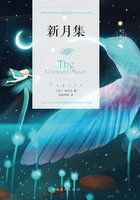Solitude
This is a delicious evening, when the whole body is one sense, and imbibes delight through every pore. I go and come with a strange liberty in Nature, a part of herself. As I walk along the stony shore of the pond in my shirt-sleeves, though it is cool as well as cloudy and windy, and I see nothing special to attract me, all the elements are unusually congenial to me. The bullfrogs trump to usher in the night, and the note of the whip-poor-will is borne on the rippling wind from over the water. Sympathy with the fluttering alder and poplar leaves almost takes away my breath; yet, like the lake, my serenity is rippled but not ruffled. These small waves raised by the evening wind are as remote from storm as the smooth reflecting surface. Though it is now dark, the wind still blows and roars in the wood, the waves still dash, and some creatures lull the rest with their notes. The repose is never complete. The wildest animals do not repose, but seek their prey now; the fox, and skunk, and rabbit, now roam the fields and woods without fear. They are Nature's watchmen—links which connect the days of animated life.
When I return to my house I find that visitors have been there and left their cards, either a bunch of flowers, or a wreath of evergreen, or a name in pencil on a yellow walnut leaf or a chip. They who come rarely to the woods take some little piece of the forest into their hands to play with by the way, which they leave, either intentionally or accidentally. One has peeled a willow wand, woven it into a ring, and dropped it on my table. I could always tell if visitors had called in my absence, either by the bended twigs or grass, or the print of their shoes, and generally of what sex or age or quality they were by some slight trace left, as a flower dropped, or a bunch of grass plucked and thrown away, even as far off as the railroad, half a mile distant, or by the lingering odor of a cigar or pipe. Nay, I was frequently notified of the passage of a traveller along the highway sixty rods off by the scent of his pipe.
There is commonly sufficient space about us. Our horizon is never quite at our elbows. The thick wood is not just at our door, nor the pond, but somewhat is always clearing, familiar and worn by us, appropriated and fenced in some way, and reclaimed from Nature. For what reason have I this vast range and circuit, some square miles of unfrequented forest, for my privacy, abandoned to me by men? My nearest neighbor is a mile distant, and no house is visible from any place but the hill-tops within half a mile of my own. I have my horizon bounded by woods all to myself; a distant view of the railroad where it touches the pond on the one hand, and of the fence which skirts the woodland road on the other. But for the most part it is as solitary where I live as on the prairies. It is as much Asia or Africa as New England. I have, as it were, my own sun and moon and stars, and a little world all to myself. At night there was never a traveller passed my house, or knocked at my door, more than if I were the first or last man; unless it were in the spring, when at long intervals some came from the village to fish for pouts—they plainly fished much more in the Walden Pond of their own natures, and baited their hooks with darkness—but they soon retreated, usually with light baskets, and left "the world to darkness and to me," and the black kernel of the night was never profaned by any human neighborhood. I believe that men are generally still a little afraid of the dark, though the witches are all hung, and Christianity and candles have been introduced.
Yet I experienced sometimes that the most sweet and tender, the most innocent and encouraging society may be found in any natural object, even for the poor misanthrope and most melancholy man. There can be no very black melancholy to him who lives in the midst of Nature and has his senses still. There was never yet such a storm but it was Aeolian music to a healthy and innocent ear. Nothing can rightly compel a simple and brave man to a vulgar sadness. While I enjoy the friendship of the seasons I trust that nothing can make life a burden to me. The gentle rain which waters my beans and keeps me in the house today is not drear and melancholy, but good for me too. Though it prevents my hoeing them, it is of far more worth than my hoeing. If it should continue so long as to cause the seeds to rot in the ground and destroy the potatoes in the low lands, it would still be good for the grass on the uplands, and, being good for the grass, it would be good for me. Sometimes, when I compare myself with other men, it seems as if I were more favored by the gods than they, beyond any deserts that I am conscious of; as if I had a warrant and surety at their hands which my fellows have not, and were especially guided and guarded. I do not flatter myself, but if it be possible they flatter me. I have never felt lonesome, or in the least oppressed by a sense of solitude, but once, and that was a few weeks after I came to the woods, when, for an hour, I doubted if the near neighborhood of man was not essential to a serene and healthy life. To be alone was something unpleasant. But I was at the same time conscious of a slight insanity in my mood, and seemed to foresee my recovery. In the midst of a gentle rain while these thoughts prevailed, I was suddenly sensible of such sweet and beneficent society in Nature, in the very pattering of the drops, and in every sound and sight around my house, an infinite and unaccountable friendliness all at once like an atmosphere sustaining me, as made the fancied advantages of human neighborhood insignificant, and I have never thought of them since. Every little pine needle expanded and swelled with sympathy and befriended me. I was so distinctly made aware of the presence of something kindred to me, even in scenes which we are accustomed to call wild and dreary, and also that the nearest of blood to me and humanest was not a person nor a villager, that I thought no place could ever be strange to me again.
"Mourning untimely consumes the sad;
Few are their days in the land of the living,
Beautiful daughter of Toscar."
Some of my pleasantest hours were during the long rain-storms in the spring or fall, which confined me to the house for the afternoon as well as the forenoon, soothed by their ceaseless roar and pelting; when an early twilight ushered in a long evening in which many thoughts had time to take root and unfold themselves. In those driving northeast rains which tried the village houses so, when the maids stood ready with mop and pail in front entries to keep the deluge out, I sat behind my door in my little house, which was all entry, and thoroughly enjoyed its protection. In one heavy thunder-shower the lightning struck a large pitch pine across the pond, making a very conspicuous and perfectly regular spiral groove from top to bottom, an inch or more deep, and four or five inches wide, as you would groove a walking-stick. I passed it again the other day, and was struck with awe on looking up and beholding that mark, now more distinct than ever, where a terrific and resistless bolt came down out of the harmless sky eight years ago. Men frequently say to me, "I should think you would feel lonesome down there, and want to be nearer to folks, rainy and snowy days and nights especially." I am tempted to reply to such—This whole earth which we inhabit is but a point in space. How far apart, think you, dwell the two most distant inhabitants of yonder star, the breadth of whose disk cannot be appreciated by our instruments? Why should I feel lonely? is not our planet in the Milky Way? This which you put seems to me not to be the most important question. What sort of space is that which separates a man from his fellows and makes him solitary? I have found that no exertion of the legs can bring two minds much nearer to one another. What do we want most to dwell near to? Not to many men surely, the depot, the post-office, the bar-room, the meeting-house, the school-house, the grocery, Beacon Hill, or the Five Points, where men most congregate, but to the perennial source of our life, whence in all our experience we have found that to issue, as the willow stands near the water and sends out its roots in that direction. This will vary with different natures, but this is the place where a wise man will dig his cellar.... I one evening overtook one of my townsmen, who has accumulated what is called "a handsome property"—though I never got a fair view of it—on the Walden road, driving a pair of cattle to market, who inquired of me how I could bring my mind to give up so many of the comforts of life. I answered that I was very sure I liked it passably well; I was not joking. And so I went home to my bed, and left him to pick his way through the darkness and the mud to Brighton—or Bright-town—which place he would reach some time in the morning.
Any prospect of awakening or coming to life to a dead man makes indifferent all times and places. The place where that may occur is always the same, and indescribably pleasant to all our senses. For the most part we allow only outlying and transient circumstances to make our occasions. They are, in fact, the cause of our distraction. Nearest to all things is that power which fashions their being. Next to us the grandest laws are continually being executed. Next to us is not the workman whom we have hired, with whom we love so well to talk, but the workman whose work we are.
"How vast and profound is the influence of the subtile powers of Heaven and of Earth!"
"We seek to perceive them, and we do not see them; we seek to hear them, and we do not hear them; identified with the substance of things, they cannot be separated from them."
"They cause that in all the universe men purify and sanctify their hearts, and clothe themselves in their holiday garments to offer sacrifices and oblations to their ancestors. It is an ocean of subtile intelligences. They are everywhere, above us, on our left, on our right; they environ us on all sides."
We are the subjects of an experiment which is not a little interesting to me. Can we not do without the society of our gossips a little while under these circumstances—have our own thoughts to cheer us? Confucius says truly, "Virtue does not remain as an abandoned orphan; it must of necessity have neighbors."
With thinking we may be beside ourselves in a sane sense. By a conscious effort of the mind we can stand aloof from actions and their consequences; and all things, good and bad, go by us like a torrent. We are not wholly involved in Nature. I may be either the driftwood in the stream, or Indra in the sky looking down on it. I may be affected by a theatrical exhibition; on the other hand, I may not be affected by an actual event which appears to concern me much more. I only know myself as a human entity; the scene, so to speak, of thoughts and affections; and am sensible of a certain doubleness by which I can stand as remote from myself as from another. However intense my experience, I am conscious of the presence and criticism of a part of me, which, as it were, is not a part of me, but spectator, sharing no experience, but taking note of it, and that is no more I than it is you. When the play, it may be the tragedy, of life is over, the spectator goes his way. It was a kind of fiction, a work of the imagination only, so far as he was concerned. This doubleness may easily make us poor neighbors and friends sometimes.
I find it wholesome to be alone the greater part of the time. To be in company, even with the best, is soon wearisome and dissipating. I love to be alone. I never found the companion that was so companionable as solitude. We are for the most part more lonely when we go abroad among men than when we stay in our chambers. A man thinking or working is always alone, let him be where he will. Solitude is not measured by the miles of space that intervene between a man and his fellows. The really diligent student in one of the crowded hives of Cambridge College is as solitary as a dervish in the desert. The farmer can work alone in the field or the woods all day, hoeing or chopping, and not feel lonesome, because he is employed; but when he comes home at night he cannot sit down in a room alone, at the mercy of his thoughts, but must be where he can "see the folks," and recreate, and, as he thinks, remunerate himself for his day's solitude; and hence he wonders how the student can sit alone in the house all night and most of the day without ennui and "the blues"; but he does not realize that the student, though in the house, is still at work in his field, and chopping in his woods, as the farmer in his, and in turn seeks the same recreation and society that the latter does, though it may be a more condensed form of it.
Society is commonly too cheap. We meet at very short intervals, not having had time to acquire any new value for each other. We meet at meals three times a day, and give each other a new taste of that old musty cheese that we are. We have had to agree on a certain set of rules, called etiquette and politeness, to make this frequent meeting tolerable and that we need not come to open war. We meet at the post-office, and at the sociable, and about the fireside every night; we live thick and are in each other's way, and stumble over one another, and I think that we thus lose some respect for one another. Certainly less frequency would suffice for all important and hearty communications. Consider the girls in a factory—never alone, hardly in their dreams. It would be better if there were but one inhabitant to a square mile, as where I live. The value of a man is not in his skin, that we should touch him.
I have heard of a man lost in the woods and dying of famine and exhaustion at the foot of a tree, whose loneliness was relieved by the grotesque visions with which, owing to bodily weakness, his diseased imagination surrounded him, and which he believed to be real. So also, owing to bodily and mental health and strength, we may be continually cheered by a like but more normal and natural society, and come to know that we are never alone.
I have a great deal of company in my house; especially in the morning, when nobody calls. Let me suggest a few comparisons, that some one may convey an idea of my situation. I am no more lonely than the loon in the pond that laughs so loud, or than Walden Pond itself. What company has that lonely lake, I pray? And yet it has not the blue devils, but the blue angels in it, in the azure tint of its waters. The sun is alone, except in thick weather, when there sometimes appear to be two, but one is a mock sun. God is alone—but the devil, he is far from being alone; he sees a great deal of company; he is legion. I am no more lonely than a single mullein or dandelion in a pasture, or a bean leaf, or sorrel, or a horse-fly, or a bumblebee. I am no more lonely than the Mill Brook, or a weathercock, or the north star, or the south wind, or an April shower, or a January thaw, or the first spider in a new house.
I have occasional visits in the long winter evenings, when the snow falls fast and the wind howls in the wood, from an old settler and original proprietor, who is reported to have dug Walden Pond, and stoned it, and fringed it with pine woods; who tells me stories of old time and of new eternity; and between us we manage to pass a cheerful evening with social mirth and pleasant views of things, even without apples or cider—a most wise and humorous friend, whom I love much, who keeps himself more secret than ever did Goffe or Whalley; and though he is thought to be dead, none can show where he is buried. An elderly dame, too, dwells in my neighborhood, invisible to most persons, in whose odorous herb garden I love to stroll sometimes, gathering simples and listening to her fables; for she has a genius of unequalled fertility, and her memory runs back farther than mythology, and she can tell me the original of every fable, and on what fact every one is founded, for the incidents occurred when she was young. A ruddy and lusty old dame, who delights in all weathers and seasons, and is likely to outlive all her children yet.
The indescribable innocence and beneficence of Nature—of sun and wind and rain, of summer and winter—such health, such cheer, they afford forever! and such sympathy have they ever with our race, that all Nature would be affected, and the sun's brightness fade, and the winds would sigh humanely, and the clouds rain tears, and the woods shed their leaves and put on mourning in midsummer, if any man should ever for a just cause grieve. Shall I not have intelligence with the earth? Am I not partly leaves and vegetable mould myself?
What is the pill which will keep us well, serene, contented? Not my or thy great-grandfather's, but our great-grandmother Nature's universal, vegetable, botanic medicines, by which she has kept herself young always, outlived so many old Parrs in her day, and fed her health with their decaying fatness. For my panacea, instead of one of those quack vials of a mixture dipped from Acheron and the Dead Sea, which come out of those long shallow black-schooner looking wagons which we sometimes see made to carry bottles, let me have a draught of undiluted morning air. Morning air! If men will not drink of this at the fountainhead of the day, why, then, we must even bottle up some and sell it in the shops, for the benefit of those who have lost their subscription ticket to morning time in this world. But remember, it will not keep quite till noonday even in the coolest cellar, but drive out the stopples long ere that and follow westward the steps of Aurora. I am no worshipper of Hygeia, who was the daughter of that old herb-doctor A ?sculapiu culapius, and who is represented on monuments holding a serpent in one hand, and in the other a cup out of which the serpent sometimes drinks; but rather of Hebe, cup-bearer to Jupiter, who was the daughter of Juno and wild lettuce, and who had the power of restoring gods and men to the vigor of youth. She was probably the only thoroughly sound-conditioned, healthy, and robust young lady that ever walked the globe, and wherever she came it was spring.















